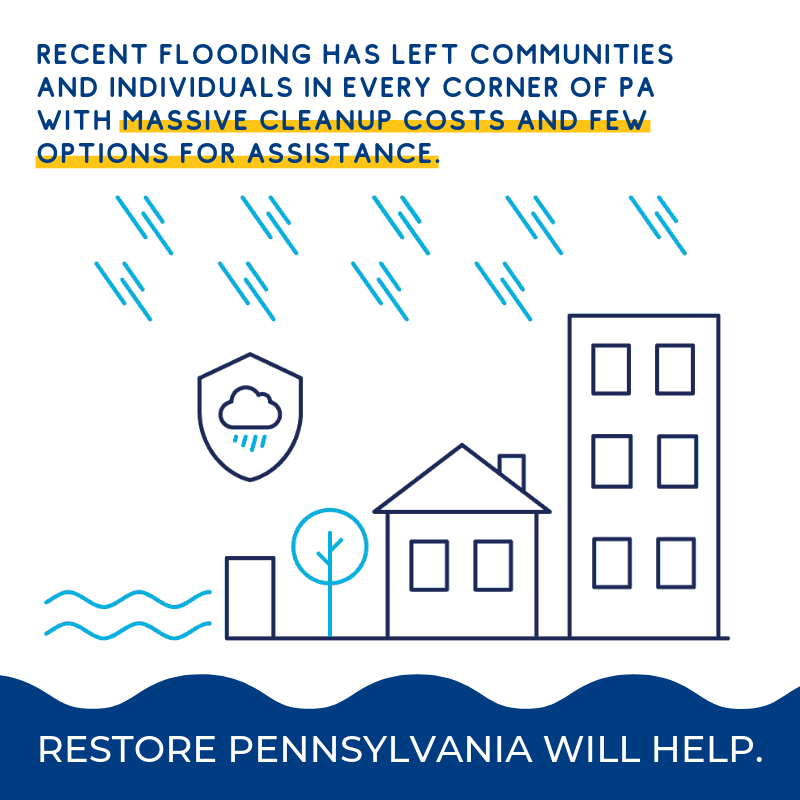Bucknell University will host the 14th Annual Susquehanna River Symposium, "Healthy Rivers, Healthy Communities" on Oct. 18 & 19 in the Elaine Langone Center. The event is free and open to the public. There is also no pre-registration for this event. We ask attendees sign-in at the welcome desk, where we can provide them a copy of the proceedings and give up-to-the minute details about times and room locations for various events.
The symposium is offered by the Bucknell Center for Sustainability & the Environment. "The symposium brings together academics, consultants, state, federal, and regional agencies, conservation groups, and the public to discuss ongoing scientific research and innovative projects, to share ideas, and to increase awareness of the connection between river health and the communities within our watersheds. Its presentations and breakout discussions explore various management and sustainability issues facing the mid-Atlantic region today," said Watershed Sciences & Engineering program director Dr. Benjamin R. Hayes.
"One of its primary goals is to draw together people from all walks of life who share a common interest in rivers, watersheds, communities, and the connections therein. It offers a time and a place where the public can interact with academics, professionals, and regulators, all working toward the same goal - a sustainable Susquehanna and Chesapeake Bay." The Pennsylvania Water Resources Research Center is also a proud supporter of this symposium.

This year's event features 147 authors from 47 colleges and organizations presenting 91 exhibits, posters, and oral presentations.
"Healthy River, Healthy Communities"
by Benjamin Hayes
The Susquehanna River provides a wide range of benefits to society. It provides jobs and supports key economic sectors, it nurtures social relations and spiritual well-being, and contributes to strategic goals such as food-energy-water security, poverty reduction and climate resilience. However, different types of benefits depend more or less on different indicators of river health, such as water quality, flows or biodiversity. Some benefits require good health across multiple indicators.
To a large extent the portfolio of benefits will depend on how the Susquehanna is managed. Access to the river and the watershed's natural resources tends to be socially differentiated. For example, over-exploitation of its ecosystems disproportionately affects the livelihoods of the citizens of its many river towns, now and for future generations. Bucknell feels that academic institutions play an important role in addressing these inequalities, environmentally, economically, socially, and spiritually. That is why we chose the theme "Healthy Rivers, Healthy Communities" for this year's River Symposium.
The relationships between river health and societal benefits are highly complex and there are a number of uncertainties, feedback loops and confounding factors at play.
For example, fisheries are a common benefit derived from rivers. Our research suggests that "healthy" river indicators include sufficient water quality, flow and connectivity, all of which are essential to support fishery productivity. The literature also provides clear evidence that fisheries support livelihoods, nutrition, cultural and spiritual values and recreational activities.
Wetlands provide many major benefits to humans and wildlife in the region. Riverine wetlands in the riparian corridor and valley floor help reduce flooding and sedimentation, provide critical habitat for aquatic and terrestrial life, and diversify natural beauty and habitat of the landscape. Palustrine wetlands in swales and depressions of the upland areas in the watershed are essential for capturing runoff from urban areas and farms, thereby reducing the amount of sediment and pollution delivered to lakes and streams in the watershed. Wetlands also support recreational activities, as well as cultural and spiritual values.
Irrigated agriculture is another critical benefit which farms in the region derive from the Susquehanna river. As with fisheries, crops grown under irrigated systems support livelihoods, with the potential for significant revenue generation with commercial production. Irrigation can also support food security through improved stability of food supply in areas subject to drought and seasonal variability, increased food availability and better incomes for farmers. However, the stream of benefits is largely determined by the objectives of the scheme investor and irrigation design, management and performance.
Furthermore, forecasted increases in irrigation will place major pressure on the Susquehanna's water ecosystems. Over-abstraction can cause river degradation in many places. Reduced downstream flows can potentially devastate ecosystems, as flow is the most important factor for bioidiversity. In addition to these flow-related stresses, agricultural inputs including pesticides and fertilizers cause pollution and eutrophication.
The most controversial causal chain is related to hydropower and the Susquehanna has four major hydropower dams in its lower section. Hydropower requires sufficient water flows and sediment control, although water quality is much less important. As such, a relatively ‘unhealthy’ river can still produce energy. Hydropower is often justified by narratives around economic growth and social development. There is evidence that hydropower production can support energy security by increasing availability. However, the relationship between hydropower and households’ access to electricity is shaped by political factors and geographic constraints.
Furthermore, hydropower development has high social, economic and environmental costs, including degradation of river ecosystems and biodiversity loss. This has a knock on effect on other potential benefits, such as fisheries.
These are just a few thoughts on the many topics up for discussion at this year's symposium. Please join us!
PROGRAM WITH ABSTRACTS
SCHEDULE OF EVENTS
Friday, October 18
Opening Remarks
The Forum (Rm. 272)
Elaine Langone Center
7:00 - 7:05 p.m. - Welcome by Karen Morin, Associate Provost, Bucknell University
7:05 - 7:20 p.m. - Opening Remarks by John Bravman*, president of Bucknell University, will give opening remarks and recognize key partners.
7:20 - 7:30 p.m. - Recognition of Honorary Symposium Chair.
* to be confirmed
Keynote Address
The Forum (Rm. 272)
Elaine Langone Center
7:30 - 8:00 p.m.
"Chesapeake Bay: Lessons Learned from 40 Years of Watershed Management."
Ann Pesiri Swanson
Executive Director of the Chesapeake Bay Commission
Poster Session
Terrace Room (Rm. 276)
Elaine Langone Center
8:00 - 10:00 p.m. - Research poster session from universities throughout the Susquehanna and Delaware River watersheds, consulting firms, state and federal agencies and watershed groups.
Saturday, October 19
Breakfast and
Poster Session
Terrace Room (Rm. 276)
Elaine Langone Center
8:00 - 8:50 a.m. - Light breakfast, coffee and conversation to get the day started.
Welcome
The Forum (Rm. 272)
Elaine Langone Center
9:00 - 9:05 a.m. - Welcome and opening remarks by Elisabeth Mermann-Jozwiak, Provost of Bucknell University
9:05 - 9:15 a.m.
Indigenous People’s Perspective
Sid Jamieson, FaithKeeper of the Greenwoods Land Conservancy
Cayuga Nation Iroquois
Plenary Talks
The Forum (Rm. 272)
Elaine Langone Center
9:15 - 9:45 a.m.
"Local Resilience Related to Flood Risk in Susquehanna Region Communities"
Lisa Iulo, Robert Nicholas, Nancy A. Tuana, Lara Fowler, Casey Helgeson, Lacey Goldberg, and Klaus Keller
Penn State Initiative for Resilient Communities (PSIRC)
9:45 - 10:15 a.m.
"It Takes a Village: Using Collaboration and Interdisciplinary Science to Unravel the Complex Dynamics of a Susquehanna River Fishery"
Geoff Smith
Pennsylvania Fish & Boat Commission
Megan K. Schall
Penn State Hazleton
10:15 - 10:45 a.m.
"Restoring Floodplains - a Regional Approach to Improve Water Quality and Community Resiliency"
Kelly Gutshall and Justin Spangler
Land Studies, Inc.
Intermission
10:45 - 11:00 a.m. - Intermission
Breakout Discussions
The Forum, Rooms 241 A/B and C/D, and Gallery Theater,
Elaine Langone Center
11:00 a.m. - 12:00 p.m. - Breakout Discussions
Lunch
Walls Lounge (Rm. 213)
Elaine Langone Center
12:15 - 1:15 p.m. - Lunch
Oral Presentations
The Forum, Rooms 241 A/B and C/D, and Gallery Theater,
Elaine Langone Center
1:30 - 2:30 p.m. - Oral Presentations
Exhibits
Center Room (Rm 256)
Elaine Langone Centernter
2:30 - 3:30 p.m. Exhibits
Oral Presentations
The Forum, Rooms 241 A/B and C/D, and Gallery Theater,
Elaine Langone Center
3:30 - 4:30 p.m. - Oral Presentations
Learn more about the Watershed Sciences & Engineering Program
Bucknell Center for Sustainability & the Environment
LOCATION
Olin Science Building, 4th Floor
Bucknell University
One Dent Drive
Lewisburg, PA 17837
570-577-1490
BCSE@bucknell.edu
WATERSHED SCIENCES AND ENGINEERING PROGRAM
Benjamin R. Hayes, Ph.D., P.G., Director
570-577-1830
Sean P. Reese, M.S., Program Scientist
570-577-3699
Want to learn more about Bucknell University?


